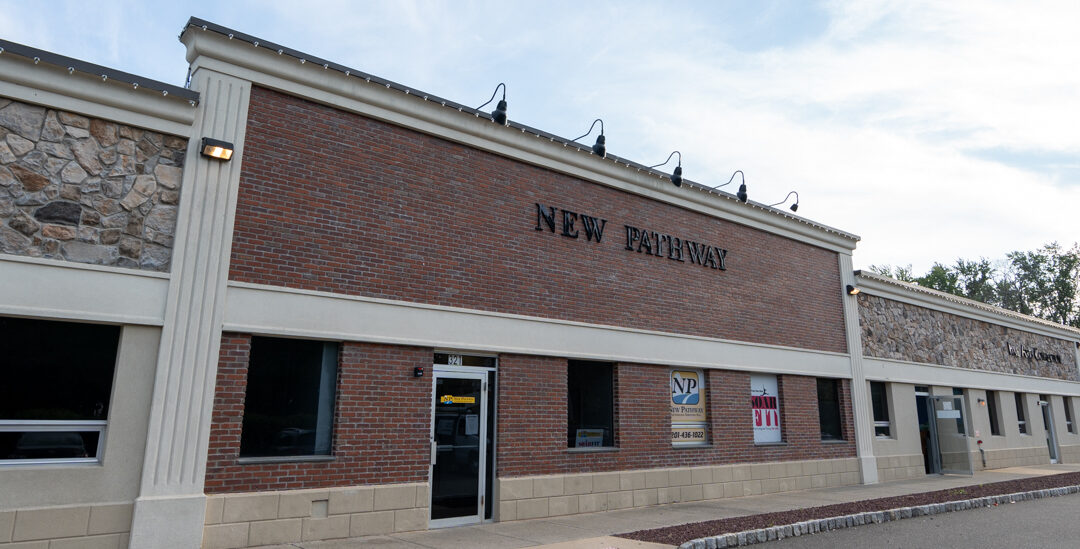Talking to your teen about potential substance use can be a bit like walking through a minefield. It’s hard to be sure what question or approach will set off a defensive response or damage the sense of trust between you.
But no matter how difficult the conversation nor how uncomfortable it may be to confirm or dispel your suspicions, it’s important to get to the bottom of any substance use so you can help your child get treatment fast.
At Guardian Recovery, we understand how challenging it can be to admit your child is struggling with anything. And finding out your teen is using substances can be devastating. However, it’s imperative to get them the high-quality help they need quickly.
As adolescent behavioral and mental health treatment specialists, we approach substance use with a dual-pronged focus of compassion paired with evidence-based care and highly credentialed medical, psychiatric, and behavioral health practitioners. Treating the causes of the conditions and not just the symptoms, we offer a holistic approach to adolescent care.
No matter your child’s struggle, we are here to help. Contact us today to learn more.
Your Teen's Transformation Starts
Here!
Guardian Recovery Adolescent can help your teen take control of their lives, putting them on a path to a brighter future filled with possibility.
Why Testing for Drug Use is Important
When trying to figure out if your teen is using substances, you may consider testing, which has its pros and cons. On one hand, drug testing your child without significant cause can be risky according to the Partnership to End Addiction. The youngster who has no intention of experimenting with drugs or alcohol may take offense that you are suspicious of them. Meanwhile, the teen who is using substances may become defensive or act out. In either instance, trust between the child and the parent may be affected.1 On the other hand, drug tests can also play an integral role in your child’s well-being. Positive test results can provide definitive evidence and assist healthcare professionals in providing treatment. Similarly, a negative drug test can help parents turn their attention to other behavioral or mental health concerns as the cause for the concerning behaviour.Which Types of Drug Testing Methods Are Available?
In-home testing kits are available but are not recommended by most medical professionals and organizations dedicated to preventing or treating substance use. That’s because many factors can affect drug test results, including how samples are collected, the type of substances being tested, and how the test is run. These variables are best controlled by professionals experienced in administering tests.1 There are many ways to test for controlled substances in a person’s system, but no one test can check for all drugs and alcohol with a single test. Here are some general facts about testing methods.- Blood tests are primarily done in emergency situations and are used to detect alcohol levels.
- Breath tests are sometimes used to check for recent alcohol use.
- Saliva tests can identify substances before they are detectable in the urine. While less invasive than other types of testing, substances or their residue remain in the mouth for only a short period of time, making the testing time range much shorter.
- Urine testing is the most common drug test.2
- Various types of urine and saliva tests can detect marijuana, cocaine, opiates, amphetamines, PCP, barbiturates, benzodiazepines, methadone, and some prescription painkillers. There are specialized tests to look for LSD, mushrooms, or inhalants.
- Hair samples can provide information on cumulative substance use but will not reveal recent activity. Hair testing can be used for the detection of cocaine, phencyclidine (PCP), amphetamines, opioids, and 3,4-Methylenedioxymethamphetamine (MDMA).
What to Expect During a Drug Test for Your Teen
Your teen’s primary care provider (PCP) or professionals at a treatment facility such as those offered by Guardian Recovery may be best suited to talk to your teen about drug use. These individuals will often ask your child a series of confidential questions and will often speak with you and your child individually and in strict confidence. Agreeing to let them talk to your teen alone may be difficult. While they can not, by law, share details without your child’s permission, they can tell you if your teen is at immediate risk of being harmed or causing harm to others.3 If the professional believes drug tests are warranted, they can be performed on small samples of blood, hair, saliva, breath, or urine. Typically, testing is done at a lab or at a treatment facility.Understanding Confidentiality in Drug Testing
According to the American Medical Association (AMA) Journal of Ethics, the question of confidentiality of health information and delivery has been evolving over the past decades. The AMA’s current opinion is that healthcare providers must provide confidential health services as an essential component of adolescent health care.5 They further state, “Confidentiality, particularly with respect to sensitive issues such as reproductive health care and substance abuse, has become a well-established tradition, grounded in law, ethics, and clinical practice.”5 With that in mind, the AMA indicates that an adolescent should only be tested without their consent if they have an impaired mental status or have experienced trauma, violence, or overdose.5 The Health Insurance Portability and Accountability Act (HIPAA) also indicates that, in the case of unemancipated minors, a parent (or other person serving as a parent) “is the personal representative of the minor child and can exercise the minor’s rights with respect to protected health information because the parent usually has the authority to make health care decisions about his or her minor child.” There are three exceptions to this rule.- When a state or other law does not require the consent of a parent or other person for a minor to obtain a particular healthcare service, and the minor consents to the healthcare service.
- When someone other than the parent (such as a court of law) is legally authorized to consent to the minor receiving a particular health service, and provides such consent.
- When a parent agrees to a confidential relationship between the minor and a healthcare provider.4
Complimentary Insurance Check
Find Out Today!
"*" indicates required fields
What Do the Test Results Mean?
There are several things to keep in mind when considering the results of a drug test.Positive Drug Test Result
A positive drug test result means a person had a detectable level of a substance in their system during a certain window of time. Some tests, such as breath tests, can indicate if the individual is currently intoxicated. Also note that a positive test result does not automatically mean that a person has a substance use disorder.2 If your teen tests positive for a substance, it is highly likely that additional testing will be ordered to confirm the results. These tests differ from primary tests and help rule out any false-positive tests.Negative Drug Test Result
A negative drug test tells you that a particular substance could not be detected in the collected sample. However, a negative result does not rule out substance use or a substance use disorder. Additionally, false negatives are also possible and can occur when:- There were problems with collecting or testing the sample.
- The person attempted to falsify a drug test (for example, by using someone else’s urine sample).
- The test ordered wasn’t designed to test for the particular substance the individual was using. For example, amphetamine testing typically doesn’t test for all types of amphetamines.2
How to Respond if the Test Is Positive
It’s vital not to jump to conclusions based on a single test. If a test comes back positive, the professional that ordered the test may recommend additional testing to rule out a possible false-positive test. Be sure to consult the person in charge of ordering the test if you have any questions.2 If the presence of a substance is confirmed, it’s likely time to seek further help from a professional. Your child may have experimented with a substance once, or they may be regularly using a substance. In either case, the behavior is cause for concern and it may well be a symptom of a deeper issue. At Guardian Recovery, we offer a holistic approach to adolescent behavior and mental health challenges. Rather than just treating the symptoms of substance use, we empower teens to identify and address the causes of their behavior. Explore our treatment philosophy online, or reach out to us now for a free and confidential conversation to learn more about our services.Finding Help for Teens with Substance Use Issues
Many resources are available to help you find the best treatment for your teen. The American Society of Addiction Medicine, the Substance Abuse and Mental Health Services Administration (SAMHSA), or a state governmental agency can provide names of specialized doctors and drug and alcohol counselors. When choosing a treatment program for your child, however, finding a center that will customize a program to meet their specific needs is important. Additionally, you want a provider that specializes in adolescent care and understands the unique challenges of this special age group. As specialists in adolescent care, Guardian Recovery offers both compassion and expertise in healing not only teens, but also the entire family.Prevention Strategies & Encouraging Healthy Choices Moving Forward
Many factors can lead your teen to experiment with and misuse drugs and alcohol. Common risk factors for teen drug use include:6- A family history of substance abuse
- A mental or behavioral health condition, such as depression, anxiety, or attention-deficit/hyperactivity disorder (ADHD)
- Impulsive or risk-taking behavior
- A history of trauma
- Low self-esteem or feelings of social rejection
- Exposure to others who use substances in a social setting
Talking to Your Teen About Drugs & Alcohol
Here are some additional tips for talking to your teen about substance use.- Ask your teen about their opinions on drug use and any questions they have.
- Resist the urge to lecture.
- Discuss reasons not to use drugs.
- Avoid scare tactics.
- Talk about the influence of social media, television programs, movies, and music and how they might glamorize substance use.
- Discuss ways to resist peer pressure.
- Think about how you’ll respond if your teen asks about your own drug and alcohol use.
Other preventive strategies
Additional preventative tactics include:- Know your teen’s activities, their whereabouts, and their social circle.
- Establish rules and consequences for being in the presence of substance use or riding in the car with someone under the influence. Work with your teen to create a plan to get home safely.
- Inventory and monitor all prescription and over-the-counter medications in your home.
- Praise and encourage your teen when they make good decisions.
- Set a good example by drinking in moderation, using prescription drugs as directed, and avoiding illicit substances.6
Our Locations
Our Facilities & Teams Transform Lives
Changing lives by providing comprehensive support and rehabilitation, empowering individuals to overcome addiction and regain control of their health and well-being.
Contact Us Today
Discovering your teen is using substances can be overwhelming. But receiving evidence-based treatment in an accredited program provides your child with the best chance of long-term recovery. At Guardian Recovery, we are available to walk you through every step of the process.
Most of our compassionate and experienced staff members have been where your child is now or have helped a loved one through the treatment process. Their experience provides them with a unique, empathetic perspective and allows for a deep level of understanding. Additionally, we offer a full continuum of adolescent care as well as virtual care services.
Behavioral and mental health treatment is not a one-size-fits-all solution, and we are dedicated to helping you find the treatment option that makes the most sense for your child’s unique clinical needs. Reach out to us now for a free and confidential conversation. Staff can answer your questions, discuss treatment options, and even verify any insurance benefits for you. Additionally, if Guardian Recovery seems like a fit, we’ll offer a free initial assessment to help you determine if treatment is warranted and which level of care might be the best place to start.
Transformation is possible. Guardian Recovery can help.
SELF-ASSESSMENT:
Do I Have an Addiction Issue?
Disclaimer: Does not guarantee specific treatment outcomes, as individual results may vary. Our services are not a substitute for professional medical advice or diagnosis; please consult a qualified healthcare provider for such matters.
- Partnership to End Addiction. (2023). Should You Drug Test Your Child?
- Cleveland Clinic. (2022). Drug Test: What it is, Purpose, Procedure, and Types
- American Academy of Pediatrics. (2024). Home Drug Testing: What Parents Need to Know
- Department of Health and Human Services. (2024). HIPAA Guidance: Personal Representatives
- AMA Journal of Ethics. (2005). Confidentiality and Consent in Adolescent Substance Abuse: An Update
- Mayo Clinic. (2023). Teen drug abuse: Help your teen avoid drugs






